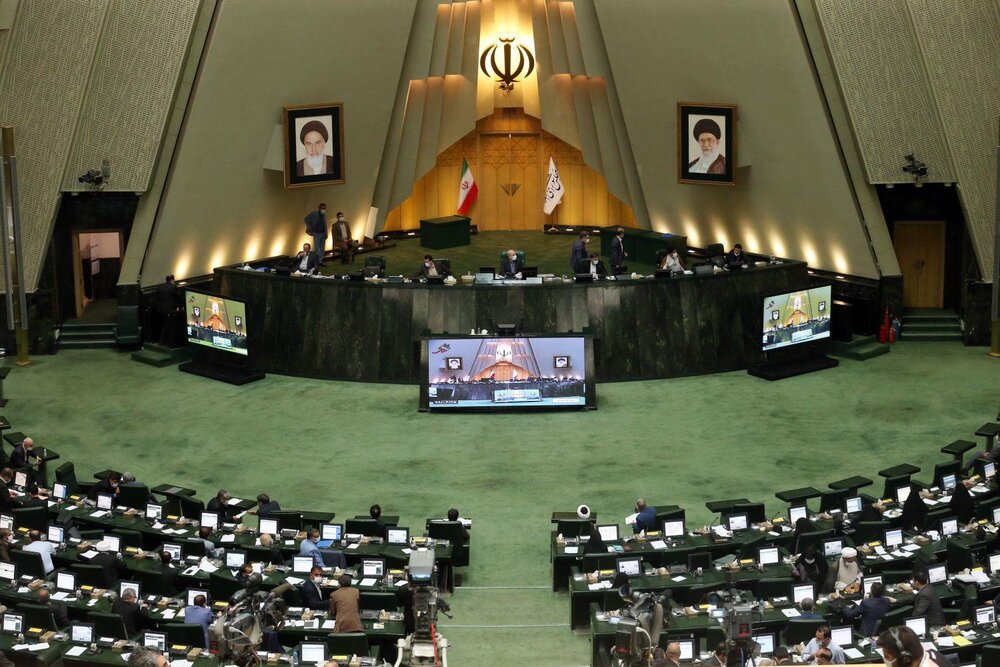Iran MPs discuss BoG resolution, Vienna talks

TEHRAN – The Iranian parliament’s National Security and Foreign Policy Committee held an extraordinary meeting to discuss the latest developments in Vienna.
Mahmoud Abbaszadeh Meshkini, the spokesman for the committee, told ICANA that the meeting was to be held in the presence of all members of the parliamentary committee and officials from the Foreign Ministry and the Atomic Energy Organization of Iran.
“The meeting will discuss developments in the Vienna talks, the International Atomic Energy Agency's recent stance, as well as the efforts of three European countries at the quarterly meeting of the Board of Governors on Iran,” he said prior to the parliamentary committee meeting.
The United States and its European allies submitted a draft resolution to the UN nuclear watchdog’s Board of Governors in recent days.
Stephanie Liechtenstein, a Vienna-based journalist covering diplomatic developments, said that “there will be a vote on the resolution submitted by U.S. & E3 to the IAEA Board of Governors either tomorrow (Wednesday) evening or Thursday morning.”
According to the journalist, the resolution is “a mildly-worded draft and there is no mention of the matter being referred to the UN Security Council.”
Iranian officials also noted that the resolution will not be strongly-worded and binding. Mohammad Eslami, the head of the Atomic Energy Organization of Iran (AEOI), said the resolution, if adopted, will not result in the creation of new conditions. “The resolution that some in the Board of Governors are seeking will not impose new conditions. The Agency must stop political influence within it and abide by its charter,” he said in remarks to Al Jazeera.
However, the resolution will not go unanswered by Iran. Iranian officials have said they will respond in kind. How Iran will respond remains to be seen. In the first step on Wednesday, Iran turned off two IAEA surveillance cameras at a nuclear facility. These cameras were beyond Safeguards' agreement.
Iran has technical options to respond, Kazem Gharibabadi, the former Iranian representative to the IAEA, said in an interview with state TV on Monday night.
Gharibabadi, now Iran’s human rights chief, called on the IAEA to stop its politically motivated behaviors.
Despite downplaying the resolution, Iran signified a willingness to respond while doubling down on its previous positions regarding the talks in
According to Vahid Jalalzadeh, the chairman of the committee, the Wednesday meeting was scheduled to discuss a range of issues including the recent trip by IAEA Director-General Rafael Grossi to Israel, which drew the ire of Iran.
“Certainly, after the investigations in the committee, we will take the necessary and revolutionary positions and, as a specialized committee, we will inform those positions to the public of our country,” he told ICANA.
He said the IAEA positions on Iran are politically motivated. “With the visit of the director general of the International Atomic Energy Agency to the Occupied Territories, the Agency proved for the umpteenth time that it has become a political organization instead of a technical one.”
Jalalzadeh noted, “The Islamic Republic of Iran was interested in resolving its disputes with the IAEA in the Vienna talks to revive the JCPOA.”
He said, “The roadmap drawn up during the International Atomic Energy Agency director general's visit to Tehran last year was for the IAEA to ask questions and for the Islamic Republic of Iran to answer them, and if there was any ambiguity for the IAEA, Iran would resolve them.”
He added, “Unfortunately, before the release of the IAEA main report, Mr. Grossi announced his position against Iran in the European Parliament. That means that the report was communicated to Mr. Grossi in the European Parliament before it was officially published. This showed that they are not looking for the truth.”
He pointed out that “recent reports by Grossi, Director General of the International Atomic Energy Agency, show that our country's peaceful treatment of the IAEA has backfired, so the representatives are urging the government to respond decisively to the IAEA.”
